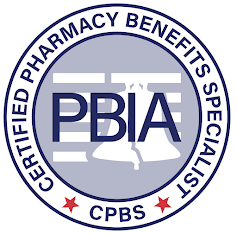Chairman Comer Calls on PBM Executives to Correct Hearing Testimony and other notes from around the interweb:
- Chairman Comer Calls on PBM Executives to Correct Hearing Testimony. House Committee on Oversight and Accountability Chairman James Comer (R-Ky.) today is calling on the CEOs of three major Pharmacy Benefit Managers (PBMs)—CVS Caremark, Express Scripts, and Optum Rx—to correct the record for statements made during their appearance before the House Oversight Committee at a hearing titled, “The Role of Pharmacy Benefit Managers in Prescription Drug Markets Part III: Transparency and Accountability.” At the House Oversight Committee’s hearing, the PBM chief executives made statements that contradict the Committee’s and the Federal Trade Commission’s findings about the PBMs’ self-benefitting practices that jeopardize patient care, undermine local pharmacies, and raise prescription drug prices. The chief executives for CVS Caremark, Express Scripts, and Optum Rx claimed they do not steer patients to PBM-owned pharmacies. The executives also made claims contradicting the Committee’s and FTC’s findings regarding contract negotiations, contract opt outs, and payments to pharmacies.
- Three Things That Employer Health Plan Sponsors Should Do When the New MHPAEA Rules Are Published. In particular, the proposed rules would implement amendments to MHPAEA that were passed under the Consolidated Appropriations Act of 2021 (CAA) to require documentation of comparative analyses for Non-Quantitative Treatment Limits (NQTLs). We anticipate that the Tri-Departments will publish new regulations for MHPAEA that will finalize most provisions of the NPRM in the coming days or weeks. We anticipate that most provisions of the new regulations will finalize the proposed requirements without significant modifications. However, robust public comments were submitted regarding several key provisions that may cause the Tri-Departments to modify or rescind the proposed rules. Three of the most controversial provisions from the proposed rules to watch for in the final rules are: Quantitative testing for Non-Quantitative Treatment Limits, Application of MHPAEA to intellectual and developmental disabilities, including autism spectrum disorder, and Fiduciary liability for health plan sponsors.
- 3 Trends Reshaping Pharmacy Benefits Management. We offer a comprehensive analysis of three critical areas transforming the sector: GLP-1 medications, biosimilars, and PBM transparency. Our analysis covers diabetes and weight loss management trends, the impact of biosimilars on the market, and the complexities of PBM rebate structures. The prevalence of diabetes in the United States has reached alarming levels, with approximately 12% of adults diagnosed with the condition. Even more concerning is the additional 40% of the population classified as pre-diabetic, underscoring the potential for a significant increase in diabetes diagnoses in the near future. This epidemiological landscape has profound implications for employer-sponsored health plans, particularly in relation to the coverage of GLP-1 (Glucagon-Like Peptide-1) receptor agonists.
- CMS’ negotiated drug prices: 12 notes. The brand names of the 10 drugs included under IRA price negotiations are as follows: Januvia; multiple Novo Nordisk variations to treat diabetes, including Fiasp; Farxiga; Enbrel; Jardiance; Stelara; Xarelto; Eliquis; Entresto; and Imbruvica. The largest discount among all 10 drugs is 79%, lowering the list price for a 30-day supply of Januvia in 2023 from $527 to $113. The most expensive drug covered, also the drug with the smallest discount at 38%, is Imbruvica for the treatment of blood cancers. Imbruvica’s list price for a 30-day supply in 2023 was just under $15,000 and will now be offered at $9,319 for Medicare-covered patients in 2026. Some of the other drugs included were approved to treat various conditions including diabetes, cardiovascular diseases, kidney disease, arthritis, psoriasis, Crohn’s disease, ulcerative colitis, blood clots, and more.
